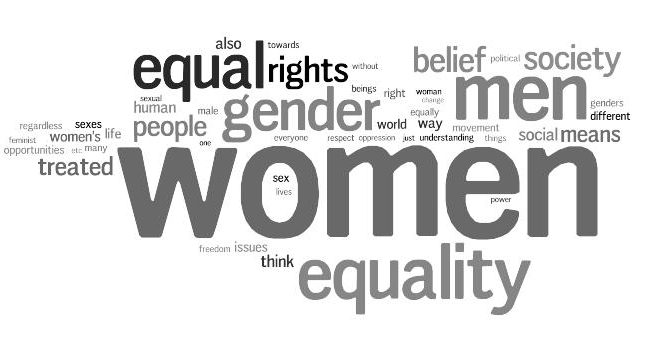Feminist Approach What Is Feminist Theory? Feminist theory, or feminism, is support of equality for women and men. Although all feminists strive for gender equality, there are various ways to approach this theory, including liberal feminism, socialist feminism and radical feminism. Let’s take a look at the basic feminist ideas and various approaches to achieving gender equality. Basic Feminist Ideas Both females and males who identify themselves as feminists disagree on many things. That being said, most feminists agree on five basic principles: Working to increase equality: Feminist thought links ideas to action, insisting we should push for change toward gender equality and not just talk about it. Expanding human choice: Feminists believe that both men and women should have the freedom to develop their human interests and talents, even if those interests and talents conflict with the status quo. For example, if a woman wants to be a mechanic, she […]
THE RISE OF MEDIA THEORY IN THE AGE OF PROPAGANDA (Review)
MASS COMMUNICATION THEORY Foundations, Ferment, and Future (Book) Chapter#4: THE RISE OF MEDIA THEORY IN THE AGE OF PROPAGANDA (Review) Muckraker Crusading journalist, typically challenging the powerful on behalf of those less so. Propaganda No-holds-barred use of communication to propagate specific beliefs and expectations. White propaganda Intentional suppression of potentially harmful information and ideas, combined with deliberate promotion of positive information or ideas to distract attention from problematic events. Propaganda theorists abandoned idealism in favor of strategies they regarded as realistic and scientific. Propaganda must be resisted by whatever means possible. Even though the threat of propaganda was great, there might be a silver lining to this cloud. If we could find a way to harness the power of propaganda to promote good and just ideals, then we would not only survive its threat but have a tool to help build a better social order. This was the promise of […]
THE RISE OF MEDIA INDUSTRIES AND MASS SOCIETY THEORY
Chapter# 3: THE RISE OF MEDIA INDUSTRIES AND MASS SOCIETY THEORY (Review) First Amendment Guarantees freedom of speech, press, assembly, and religion Culture war Struggle to define the cultural foundation of the broader social order in which we live THE RISE OF YELLOW JOURNALISM At the beginning of the twentieth century, every industry had its barons, and the most notorious—if not the greatest—of the press lords was Hearst. Hearst specialized in buying up failing newspapers and transforming them into profitable enterprises. He demonstrated that the news business could be as profitable as railroads, steel, or oil. One secret to his success was devising better strategies for luring low income readers. His newspapers combined a low-selling price with innovative new forms of content that included lots of pictures, serialized stories, and comic strips. Some experts even say that yellow journalism got its name from one of the first comic strips: “The Yellow […]
The Study of Political Communication ( review )
Chapter #3 : The Study of Political Communication (Review) The study of political communication is popularly believed to have begun with television, it actually dates back nearly a century. It was Walter Lippmann, the American journalist writing in the 1920s, who eloquently and influentially described the ability of the media to mold the images people carried in their heads about a distant world that was “out of reach, out of sight [and] out of mind.” EARLY HISTORY OF POLITICAL COMMUNICATION SCHOLARSHIP Back to Lippmann in the 1920s. After the war, Lippmann became disillusioned by the ways that Creel had used the powers of persuasion and coercion to influence the mass public. He rejected classic liberal democracy concepts, such as the power of rational thought or the ability of the press to relay accurate information. Instead, he concluded that people were prone to psychologically distort information and engage in stereotyping. “We […]
TV or Television as a Medium for Education
Television is the audio-visual media of communication. It offers a window to the outside world. Among all the mass media, television attracts the largest number of viewers. It is the most popular and has the greatest potential. This is because it is able to attract the audience of all age groups, literate and illiterate and of all the levels of the society. Television has been given considerable importance in many countries as a source and a tool of teaching. Television is adaptable and can follow different approaches when used in the different educational situations. The medium is used for formal, non-formal and informal education. To support formal education, television usually function as supportive and reinforcement tool. Generally television can help to achieve the following objectives: 1. Social quality in education 2. Enhance quality in education 3. Reduce dependency on verbal teaching and teachers 4. Provide flexibility of time and space […]
Four Eras Of Mass Media Theory (Review)
Mass Communication Theory Foundations, Ferment, and Future Review of Chaper 2: FOUR ERAS OF MEDIA THEORY We have identified four distinct eras in the development of mass communication theories, beginning with the origin of media theory in the nineteenth century and ending with the emergence of an array of contemporary perspectives. THE ERA OF MASS SOCIETY AND MASS CULTURE The era of mass society theory is characterized by overinflated fears of media’s influence on “average” people and overly optimistic views of their ability to bring about social good. Powerful social and cultural elites, who saw the traditional social order that was serving them so well undermined by popular media content, were the primary advocates of the former view. Urban elites—the new capitalists whose power was increasingly based on industrialization and urbanization—viewed technology, including the mass media, as facilitating control over the physical environment, expanding human productivity, and generating new forms […]
